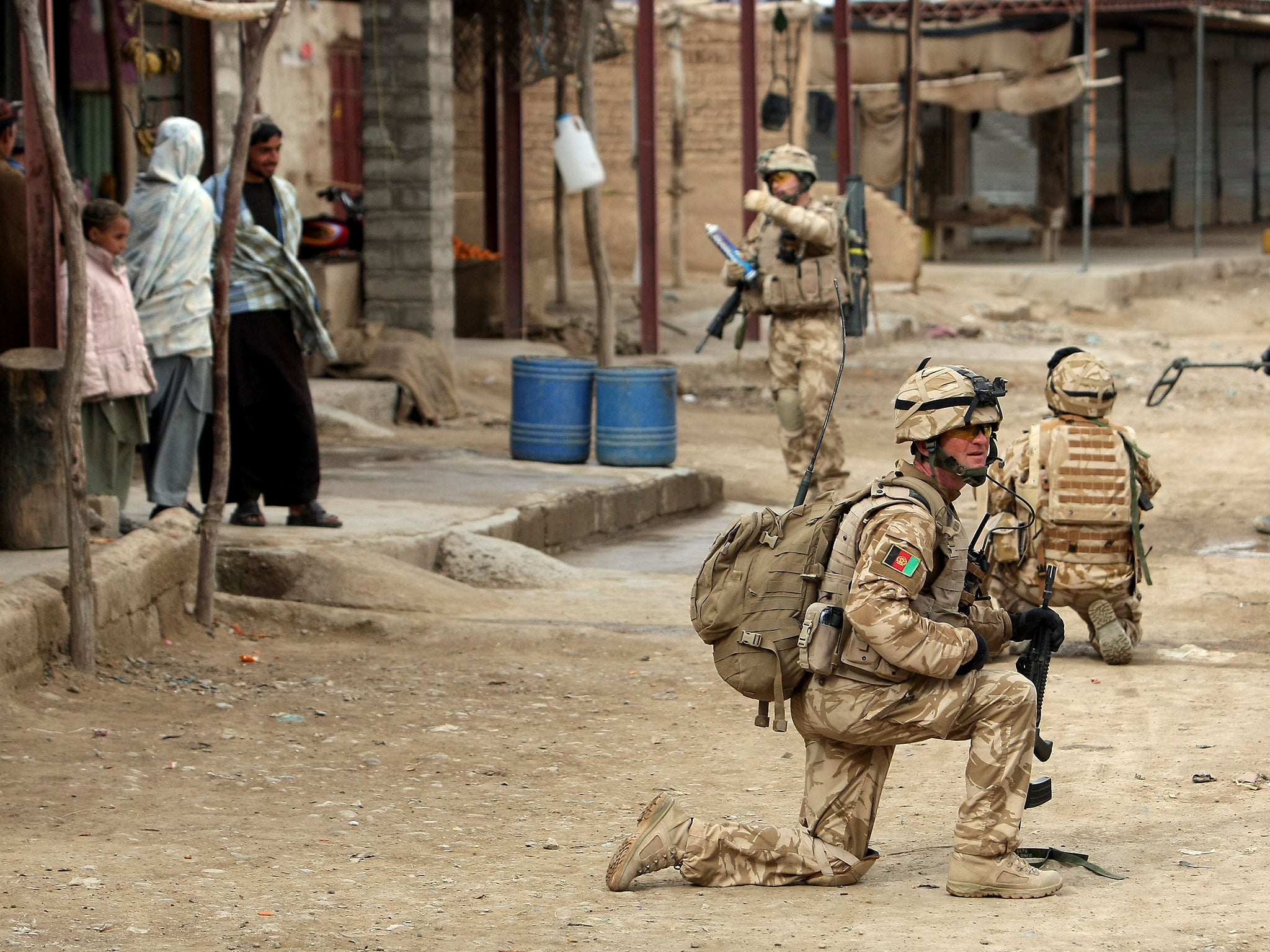Britain should not be so ready to help train the troops of repressive regimes
David Cameron has got the balance wrong between engaging and isolating governments guilty of abusing human rights

Your support helps us to tell the story
From reproductive rights to climate change to Big Tech, The Independent is on the ground when the story is developing. Whether it's investigating the financials of Elon Musk's pro-Trump PAC or producing our latest documentary, 'The A Word', which shines a light on the American women fighting for reproductive rights, we know how important it is to parse out the facts from the messaging.
At such a critical moment in US history, we need reporters on the ground. Your donation allows us to keep sending journalists to speak to both sides of the story.
The Independent is trusted by Americans across the entire political spectrum. And unlike many other quality news outlets, we choose not to lock Americans out of our reporting and analysis with paywalls. We believe quality journalism should be available to everyone, paid for by those who can afford it.
Your support makes all the difference.This might be the perpetual question of British foreign policy after the Cold War: how best to promote human rights in the world. As ever, it is a question of getting the balance right between engagement and isolation.
Our report today, that the UK trains the armed forces in 16 of the 30 countries on the Foreign Office’s list of those about which it has human rights concerns, suggests that David Cameron has got the balance wrong.
No doubt the Government’s defence is that each case must be considered on its merits. Indeed, in some cases, a British role in training and advising the military, even in states with poor human rights records, might be justified. In Afghanistan, for example, this country has a responsibility as part of the alliance that intervened against the Taliban 15 years ago to try to maintain stability. However, questions should always be asked about whether the British presence there is making the problems of corruption and humanrights abuses better or worse.
In other cases, The Independent would argue that the balance of the argument is clearly tilted against British involvement in military training. Saudi Arabia and Bahrain are two cases in which we have called for a reassessment of British engagement.
In March, for example, we reported that British commandos are training Bahraini soldiers in the use of sniper rifles – despite fears that they had been used against protesters during the pro-democracy uprising in 2011.
The UK’s relationship with Saudi Arabia is a rather larger subject, going wider than mere military training to the sale of arms and the exchange of intelligence. Even if it had not been for the Saudis’ involvement in a civil war in Yemen, in which human rights have been abused on both sides, the Saudi domestic record of political executions and the denial of women’s rights should have prompted a rethink of British relations with this supposed ally.
We recognise that these questions are not necessarily simple. British foreign policy should not be dictated by the desire to wash our hands of any difficult situation abroad. It may not be obvious whether engaging with totalitarian regimes is more or less likely to improve the lives of their citizens than embargoes, boycotts and condemnation.
Nor is it always clear what the consequences of sanctions against a repressive regime might be. It may seem cynical, but the UK Government ought to take into account what the likely alternative to the House of Saud in Saudi Arabia, for example, might be.
That said, we feel that the balance has in recent years been struck in the wrong place. As Prime Minister, Mr Cameron is bound to weigh the perspectives of the Ministry of Defence, the Foreign Office and the Department for International Development. We believe that he should tilt that balance towards a more censorious view of human rights abuses.
Britain should take a prouder stance on liberty around the world, and our armed forces should be more reluctant to lend our name to repressive regimes.
Join our commenting forum
Join thought-provoking conversations, follow other Independent readers and see their replies
Comments